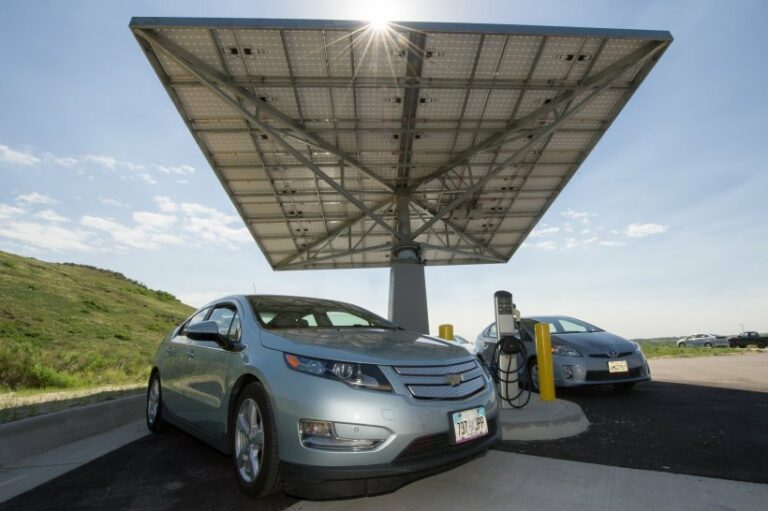The Significance Of Eco-Friendly Vehicles: Exploring Their Importance
Today we discuss The Significance Of Eco-Friendly Vehicles. Eco-friendly vehicles have become increasingly important in today’s world, where environmental issues are at the forefront of everyone’s minds. These vehicles offer a solution to the rising pollution levels and the detrimental effects of traditional transportation methods.
By opting for eco-friendly vehicles, individuals can actively contribute towards a cleaner and greener future. But what exactly is the importance of eco-friendly vehicles? Well, they are not just a trendy alternative; they are a practical and effective means of reducing harmful emissions and conserving natural resources.
In this article, we will delve into the various reasons why eco-friendly vehicles are of utmost importance and how they can play a significant role in shaping a sustainable future. So, let’s explore the importance of eco-friendly vehicles together!
The Significance Of Eco-Friendly Vehicles: Exploring Their Importance
In today’s world, the need to protect our environment and reduce pollution has become more critical than ever before. The transportation sector, particularly the use of vehicles, is a significant contributor to air pollution and greenhouse gas emissions. As a result, there has been a growing emphasis on the importance of eco-friendly vehicles. These vehicles, also known as green vehicles or environmentally friendly vehicles, have numerous benefits for both the environment and human health. In this article, we will explore the various reasons why eco-friendly vehicles are essential in creating a sustainable future.
Reduced Air Pollution
One of the primary benefits of eco-friendly vehicles is their capacity to reduce air pollution. Traditional vehicles that run on fossil fuels emit harmful pollutants into the atmosphere, contributing to smog and poor air quality. On the other hand, eco-friendly vehicles, such as electric cars and hybrids, produce little to no tailpipe emissions. This reduction in air pollution helps mitigate respiratory diseases, improves overall air quality, and reduces the impact of climate change.
Electric Vehicles (EVs)
Electric vehicles, powered by electricity stored in batteries, have gained significant popularity in recent years. They produce zero tailpipe emissions and offer a cleaner alternative to conventional gasoline or diesel vehicles. By adopting electric vehicles, we can significantly reduce the amount of harmful pollutants released into the air, helping to combat climate change and improve air quality.
Hybrid Vehicles
Hybrid vehicles combine both an internal combustion engine and an electric motor. These vehicles utilize the electric motor for lower speeds and rely on the combustion engine for higher speeds or when additional power is needed. By utilizing the electric motor during low-speed driving, hybrid vehicles reduce fuel consumption and emissions, making them more fuel-efficient and less polluting than traditional vehicles.
Lower Greenhouse Gas Emissions
Greenhouse gas emissions, particularly carbon dioxide (CO2), are a significant contributor to global warming and climate change. Eco-friendly vehicles are designed to minimize these emissions, thereby reducing their impact on the environment. By transitioning to eco-friendly vehicles, we can collectively lower greenhouse gas emissions and work towards achieving international climate goals.
Carbon-neutral Options
Some eco-friendly vehicles go beyond simply reducing emissions and aim to be carbon-neutral. These vehicles often utilize renewable energy sources, such as solar or wind power, to charge their batteries or power their engines. By relying on clean and sustainable energy, carbon-neutral vehicles effectively eliminate their carbon footprint, making them an ideal choice for environmentally conscious individuals.
Alternative Fuel Vehicles
Apart from electric and hybrid vehicles, there are other eco-friendly options available, such as vehicles running on alternative fuels. These fuels include biodiesel, ethanol, hydrogen, and compressed natural gas (CNG). Alternative fuel vehicles produce fewer emissions compared to traditional gasoline or diesel vehicles, contributing to a cleaner and healthier environment.
Energy Conservation
Eco-friendly vehicles are typically more energy-efficient than their conventional counterparts. They utilize advanced technologies and design features that optimize fuel or energy consumption, ultimately reducing our dependence on fossil fuels. By embracing energy-efficient vehicles, we can conserve natural resources and move towards a more sustainable energy future.
Regenerative Braking Systems
Many eco-friendly vehicles incorporate regenerative braking systems, which convert the vehicle’s kinetic energy into electric energy. This technology allows the vehicle to recharge its battery while braking or decelerating, reducing the reliance on external charging sources. The energy captured through regenerative braking can be subsequently utilized to power the vehicle’s electrical systems or propel the vehicle forward, maximizing overall energy efficiency.
Lightweight Materials
Another strategy employed by eco-friendly vehicle manufacturers is the use of lightweight materials, such as aluminum or carbon fiber. Lightweight vehicles require less energy to move, resulting in improved fuel efficiency. By reducing the weight of vehicles, manufacturers can achieve greater energy conservation without compromising on safety or performance.
Health Benefits
In addition to environmental advantages, eco-friendly vehicles offer significant health benefits for individuals and communities. The reduction in air pollution resulting from the use of these vehicles directly contributes to improved public health outcomes.
Reduced Respiratory Issues
Air pollution, particularly from vehicle emissions, can have detrimental effects on respiratory health. By switching to eco-friendly vehicles, we can lower the levels of harmful pollutants in the air, leading to a decrease in respiratory issues such as asthma and allergies. This positive impact on public health can enhance the overall well-being and quality of life for individuals, especially those living in densely populated areas.
Noise Pollution Reduction
Traditional vehicles not only contribute to air pollution but also generate significant noise pollution. The noise generated by engines and exhaust systems can be disruptive and have negative effects on mental health and overall quality of life. Eco-friendly vehicles, with their quieter engines and electric motors, help reduce noise pollution, creating a more peaceful and pleasant environment for everyone.
In conclusion, the importance of eco-friendly vehicles cannot be overstated. These vehicles play a crucial role in reducing air pollution, lowering greenhouse gas emissions, conserving energy, and promoting public health. By embracing eco-friendly vehicles, we can move towards a more sustainable future and create a cleaner, healthier environment for generations to come. It is essential for individuals, governments, and industries to prioritize and support the adoption of eco-friendly vehicles as a collective effort towards a greener planet.
Are Electric Cars Really More Environmentally Friendly?
Frequently Asked Questions
What is the importance of eco-friendly vehicles?
Eco-friendly vehicles play a crucial role in reducing carbon emissions and minimizing the impact on the environment. By using alternative fuels such as electricity or hydrogen, these vehicles help decrease air pollution and combat climate change. They also promote energy efficiency, reduce dependence on fossil fuels, and contribute to creating a sustainable future.
How do eco-friendly vehicles benefit the environment?
Eco-friendly vehicles have a significantly lower carbon footprint compared to traditional vehicles. They produce fewer greenhouse gas emissions, which helps reduce air pollution and improve air quality. By utilizing cleaner energy sources, these vehicles contribute to the preservation of natural resources and protect ecosystems from harmful pollutants.
What economic advantages come with eco-friendly vehicles?
Eco-friendly vehicles offer several economic benefits. They help decrease reliance on imported fossil fuels, reducing the vulnerability to price volatility in the energy market. Moreover, the growing demand for eco-friendly vehicles leads to new job opportunities in the renewable energy sector, fostering economic growth and innovation.
Do eco-friendly vehicles save money on fuel costs?
Yes, eco-friendly vehicles can save money on fuel costs in the long run. Electric vehicles, for example, have lower energy costs compared to conventional gasoline cars. By utilizing electricity or alternative fuels, eco-friendly vehicles offer increased fuel efficiency, resulting in reduced fuel consumption and monetary savings for the vehicle owners.
Are there any government incentives for purchasing eco-friendly vehicles?
Many governments provide incentives to promote the adoption of eco-friendly vehicles. These incentives can include tax credits, rebates, grants, or other financial incentives. Additionally, some regions offer access to HOV (high-occupancy vehicle) lanes and preferential parking for eco-friendly vehicles, further encouraging their purchase and usage.
What impact can eco-friendly vehicles have on public health?
Eco-friendly vehicles contribute to improved public health by reducing air pollution. With lower emissions of harmful pollutants like nitrogen oxides and particulate matter, these vehicles help reduce the incidence of respiratory diseases, allergies, and other health issues associated with poor air quality. By transitioning to eco-friendly vehicles, we can create healthier and more livable communities.
Final Thoughts
In conclusion, the importance of eco-friendly vehicles cannot be overstated. These vehicles play a vital role in reducing harmful emissions, improving air quality, and mitigating climate change. By utilizing renewable energy sources and advanced technologies, eco-friendly vehicles offer a sustainable solution to the environmental challenges we face today. Furthermore, they contribute to energy independence and promote economic growth through the development of green industries. It is imperative that we embrace and support the adoption of eco-friendly vehicles to ensure a cleaner, healthier, and more sustainable future for generations to come.






